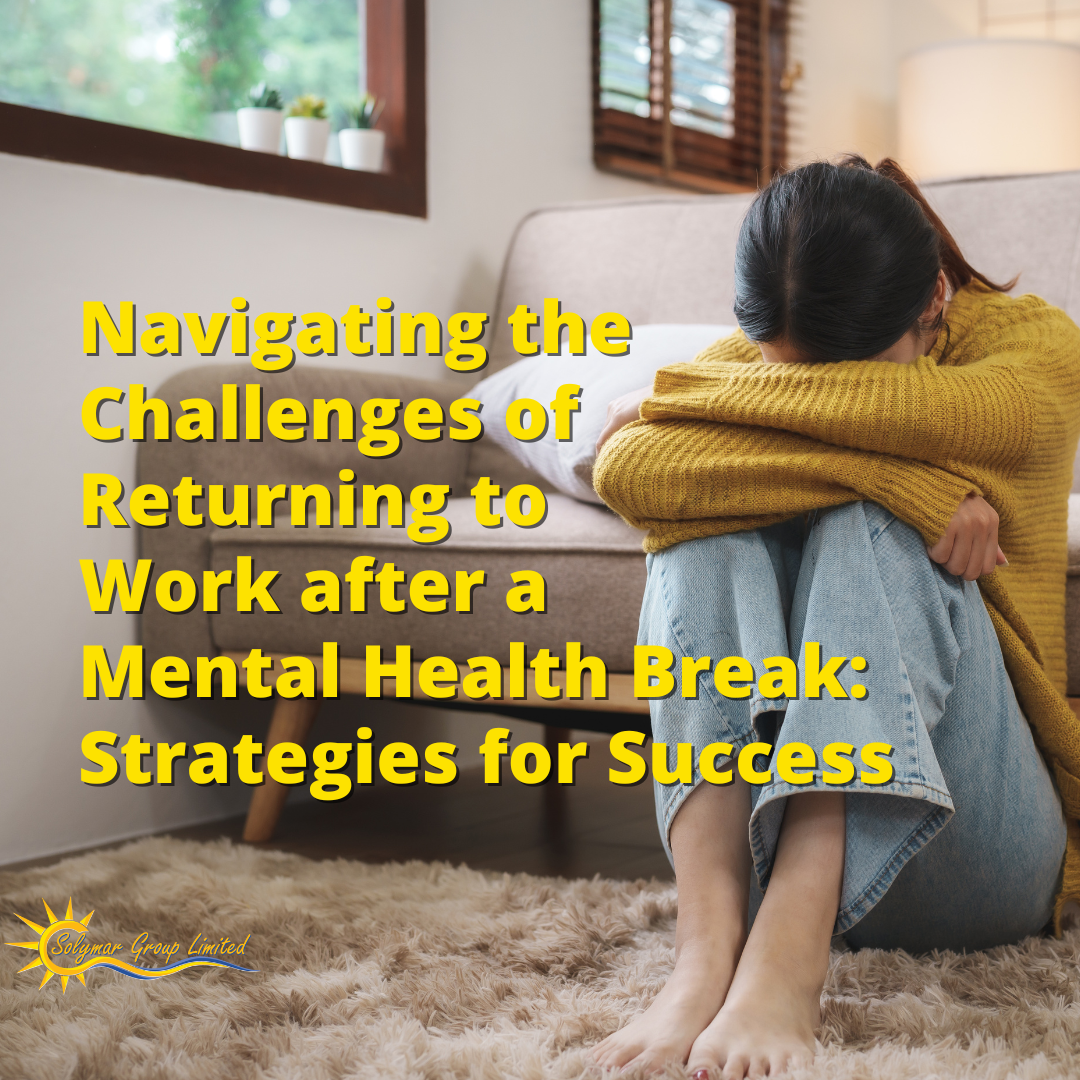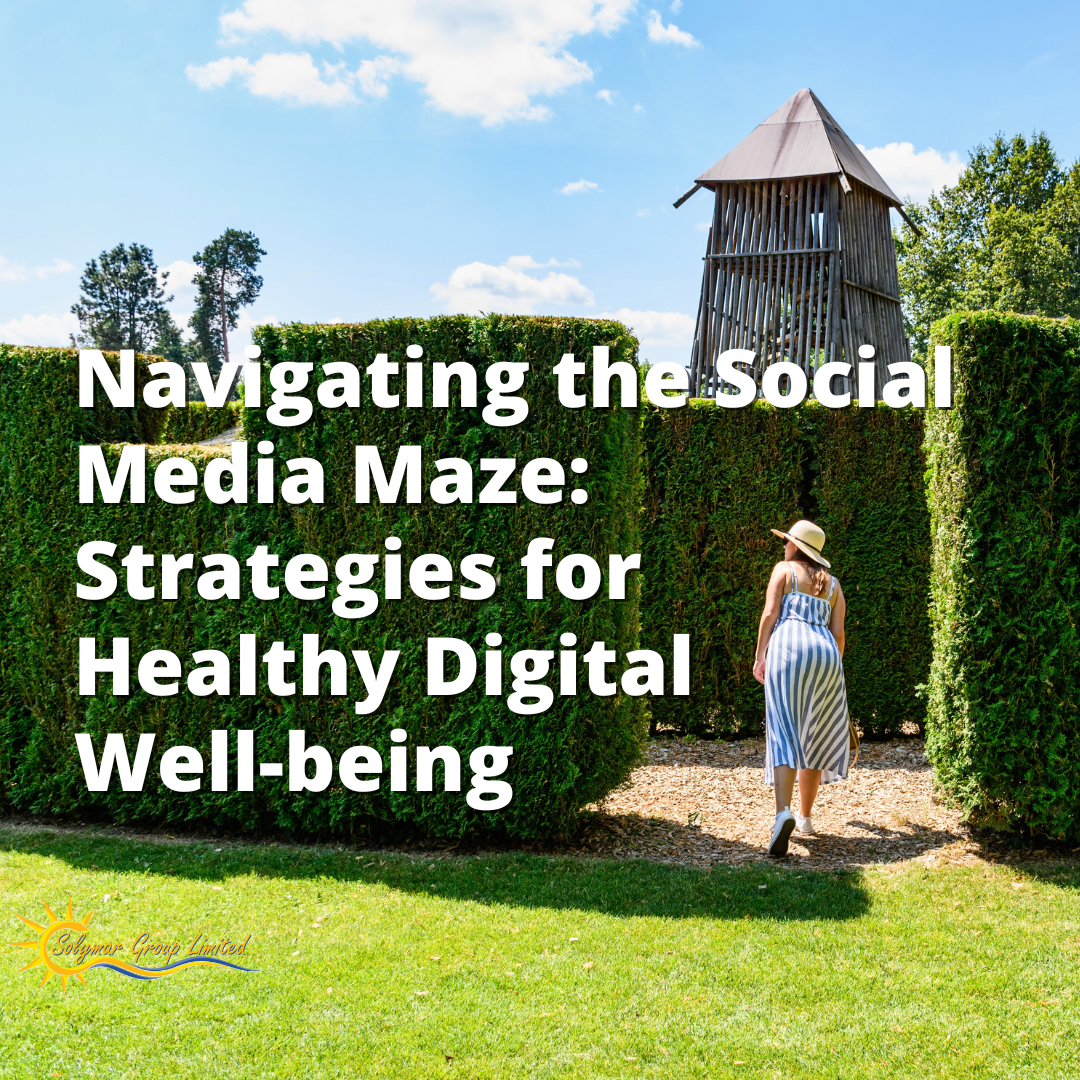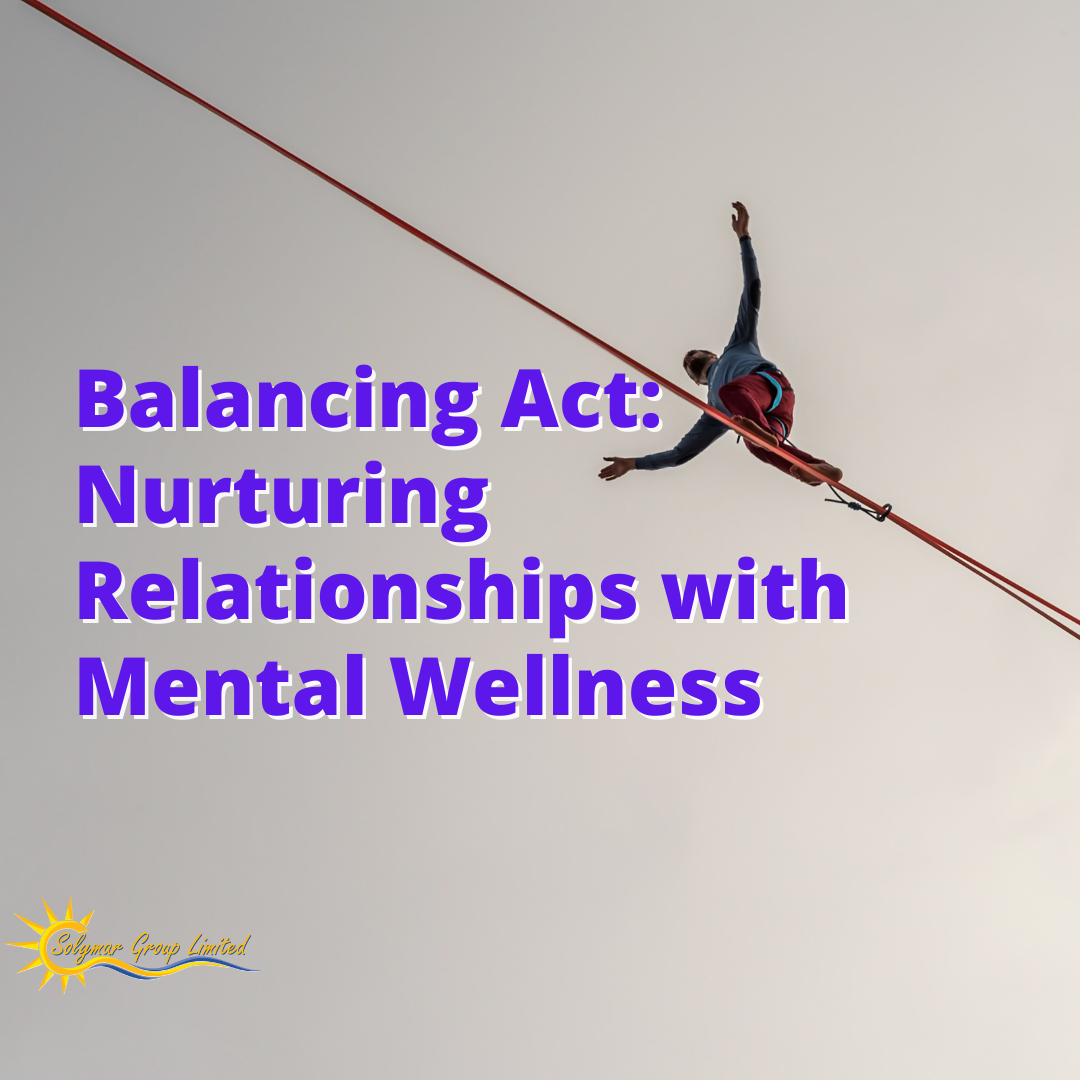 Returning to work after taking a mental health break can be a significant milestone in one's recovery journey. However, it can also present unique challenges and uncertainties. This article aims to provide guidance on successfully navigating this transition, offering strategies that prioritize self-care, effective communication, and seeking appropriate workplace support.
Returning to work after taking a mental health break can be a significant milestone in one's recovery journey. However, it can also present unique challenges and uncertainties. This article aims to provide guidance on successfully navigating this transition, offering strategies that prioritize self-care, effective communication, and seeking appropriate workplace support.
-
Prioritize Self-Care:
After a mental health break, it is crucial to prioritize self-care as you transition back into the workplace. Understand your personal needs and set realistic expectations for yourself. Maintain a healthy work-life balance by incorporating activities that promote mental and physical well-being into your routine. This might include exercise, meditation, adequate sleep, and engaging in hobbies or activities that bring you joy and relaxation.
-
Communicate with Your Employer:
Open and honest communication with your employer is vital when returning to work after a mental health break. Before your return, schedule a meeting with your supervisor or HR department to discuss your concerns, any necessary accommodations, and potential adjustments to your workload or schedule. Sharing your needs and limitations can foster a supportive environment and help manage expectations.
-
Ease Back into Work:
Returning to work can be overwhelming, so consider easing back gradually. Discuss with your employer the possibility of a phased return or flexible work hours during the initial weeks. This approach allows you to adjust gradually, manage stress levels, and maintain a healthy transition. It also provides an opportunity to evaluate and readjust if needed.
-
Seek Peer Support:
Connecting with colleagues who have experienced similar challenges can be invaluable. Consider reaching out to employee resource groups, support networks, or even close coworkers who may have gone through comparable experiences. Sharing experiences, seeking advice, and receiving support from those who understand can greatly enhance your reintegration process.
-
Utilize Available Resources:
Many workplaces offer resources to support employees' mental health and well-being. Familiarize yourself with the resources available, such as employee assistance programs, counseling services, or mental health initiatives. These programs can provide guidance, therapy, and tools to cope with workplace stressors effectively. If not, contact Solymar Online Therapy at SolymarOnlineTherapy.com for support
-
Maintain Boundaries:
Returning to work after a mental health break might require setting and maintaining healthy boundaries. Be mindful of your limitations and communicate them clearly with colleagues. Learn to say no to additional responsibilities that could overwhelm you. Prioritizing self-care and work-life balance is crucial to sustain long-term well-being.
-
Advocate for Yourself:
If you require specific accommodations to facilitate your successful return to work, advocate for yourself. Familiarize yourself with your legal rights and any relevant workplace policies. Share your needs with your employer and discuss reasonable accommodations that could enhance your productivity and well-being. Remember, you have the right to a supportive and inclusive work environment.
-
Monitor Your Well-being:
Returning to work may trigger stress or anxiety. Stay attuned to your mental health and be proactive in managing it. Check in with yourself regularly and seek professional help if needed. Consider using stress-management techniques, such as deep breathing exercises or mindfulness practices, throughout the day. Prioritize self-care activities during and outside of work to support your overall well-being.
Returning to work after a mental health break can be challenging, but with the right strategies, it can also be an opportunity for growth and renewed focus on well-being. Prioritizing self-care, communicating effectively with your employer, seeking peer support are some ways to help manage the return to work.
Hashtags: #MentalHealth #ReturningToWork #SelfCare #Communication #WorkplaceSupport

 In today's fast-paced and interconnected world, it's becoming increasingly vital to establish healthy boundaries for safeguarding our mental well-being. Setting boundaries is not about building walls but rather creating a framework that promotes self-care, reduces stress, and fosters healthy relationships. This blog explores why healthy boundaries are essential for your mental health and provides insights into how you can effectively establish and maintain them.
In today's fast-paced and interconnected world, it's becoming increasingly vital to establish healthy boundaries for safeguarding our mental well-being. Setting boundaries is not about building walls but rather creating a framework that promotes self-care, reduces stress, and fosters healthy relationships. This blog explores why healthy boundaries are essential for your mental health and provides insights into how you can effectively establish and maintain them. In today's digital age, social media has become an integral part of our lives. These platforms provide opportunities for connection, self-expression, and information sharing. However, it's important to acknowledge the profound impact social media can have on our mental health. While it can be a valuable tool, it's essential to use it in a healthy way to protect our well-being. In this blog post, we will delve into the influence of social media on mental health and explore effective strategies for maintaining a healthy relationship with these platforms.
In today's digital age, social media has become an integral part of our lives. These platforms provide opportunities for connection, self-expression, and information sharing. However, it's important to acknowledge the profound impact social media can have on our mental health. While it can be a valuable tool, it's essential to use it in a healthy way to protect our well-being. In this blog post, we will delve into the influence of social media on mental health and explore effective strategies for maintaining a healthy relationship with these platforms. Living with a mental illness can be challenging, but it can be even more difficult when trying to maintain healthy relationships with loved ones. It can feel overwhelming to balance your own self-care with the needs and expectations of others. However, it's important to remember that having a mental illness does not mean you cannot have healthy relationships. Here are some tips for maintaining healthy relationships while managing a mental illness.
Living with a mental illness can be challenging, but it can be even more difficult when trying to maintain healthy relationships with loved ones. It can feel overwhelming to balance your own self-care with the needs and expectations of others. However, it's important to remember that having a mental illness does not mean you cannot have healthy relationships. Here are some tips for maintaining healthy relationships while managing a mental illness. Understanding the Link between Gut Health and Mental Health
Understanding the Link between Gut Health and Mental Health Summer is a time for fun in the sun, but it can also be a time of increased anxiety for many people. The warm weather, social events, and changes in routine can all contribute to feelings of stress and overwhelm. As a mental health coach, I often work with clients to develop strategies for managing anxiety during the summer months. In this article, I will share some tips and techniques that can help you maintain good mental health and enjoy all that the summer season has to offer.
Summer is a time for fun in the sun, but it can also be a time of increased anxiety for many people. The warm weather, social events, and changes in routine can all contribute to feelings of stress and overwhelm. As a mental health coach, I often work with clients to develop strategies for managing anxiety during the summer months. In this article, I will share some tips and techniques that can help you maintain good mental health and enjoy all that the summer season has to offer.
 What is the purpose of life? This question has been asked by countless individuals throughout history. While there is no one-size-fits-all answer, finding your life’s purpose is a critical aspect of maintaining good mental health.
What is the purpose of life? This question has been asked by countless individuals throughout history. While there is no one-size-fits-all answer, finding your life’s purpose is a critical aspect of maintaining good mental health.




